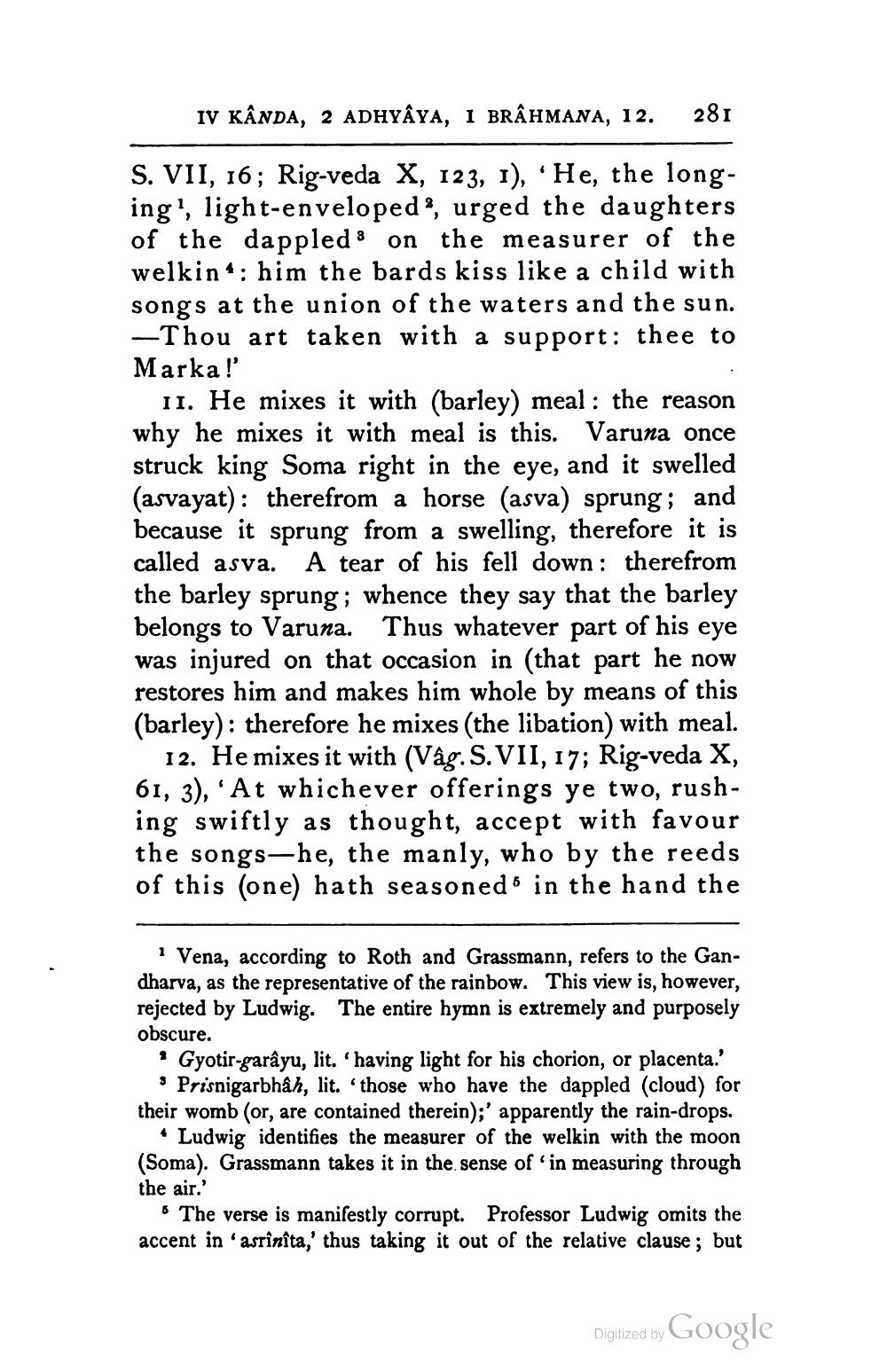________________
IV KÂNDA, 2 ADHYAYA, I BRÂHMANA, 12.
281
S. VII, 16; Rig-veda X, 123, 1), 'He, the longing', light-enveloped, urged the daughters of the dappled 8 on the measurer of the welkin*: him the bards kiss like a child with songs at the union of the waters and the sun.
-Thou art taken with a support: thee to Marka!
11. He mixes it with (barley) meal: the reason why he mixes it with meal is this. Varuna once struck king Soma right in the eye, and it swelled (asvayat): therefrom a horse (asva) sprung; and because it sprung from a swelling, therefore it is called asva. A tear of his fell down: therefrom the barley sprung; whence they say that the barley belongs to Varuna. Thus whatever part of his eye was injured on that occasion in (that part he now restores him and makes him whole by means of this (barley): therefore he mixes (the libation) with meal.
12. He mixes it with (Vâg. S.VII, 17; Rig-veda X, 61, 3), 'At whichever offerings ye two, rushing swiftly as thought, accept with favour the songs—he, the manly, who by the reeds of this (one) hath seasoned in the hand the
1 Vena, according to Roth and Grassmann, refers to the Gandharva, as the representative of the rainbow. This view is, however, rejected by Ludwig. The entire hymn is extremely and purposely obscure.
· Gyotir-garayu, lit. 'having light for his chorion, or placenta.'
s Prisnigarbhâh, lit. those who have the dappled (cloud) for their womb (or, are contained therein);' apparently the rain-drops.
• Ludwig identifies the measurer of the welkin with the moon (Soma). Grassmann takes it in the sense of 'in measuring through the air.'
5 The verse is manifestly corrupt. Professor Ludwig omits the accent in 'astinita,' thus taking it out of the relative clause; but
Digitized by Google




